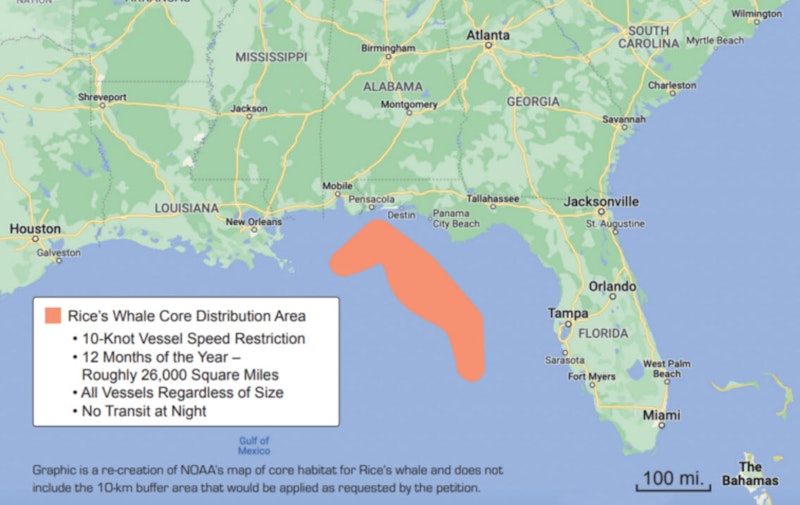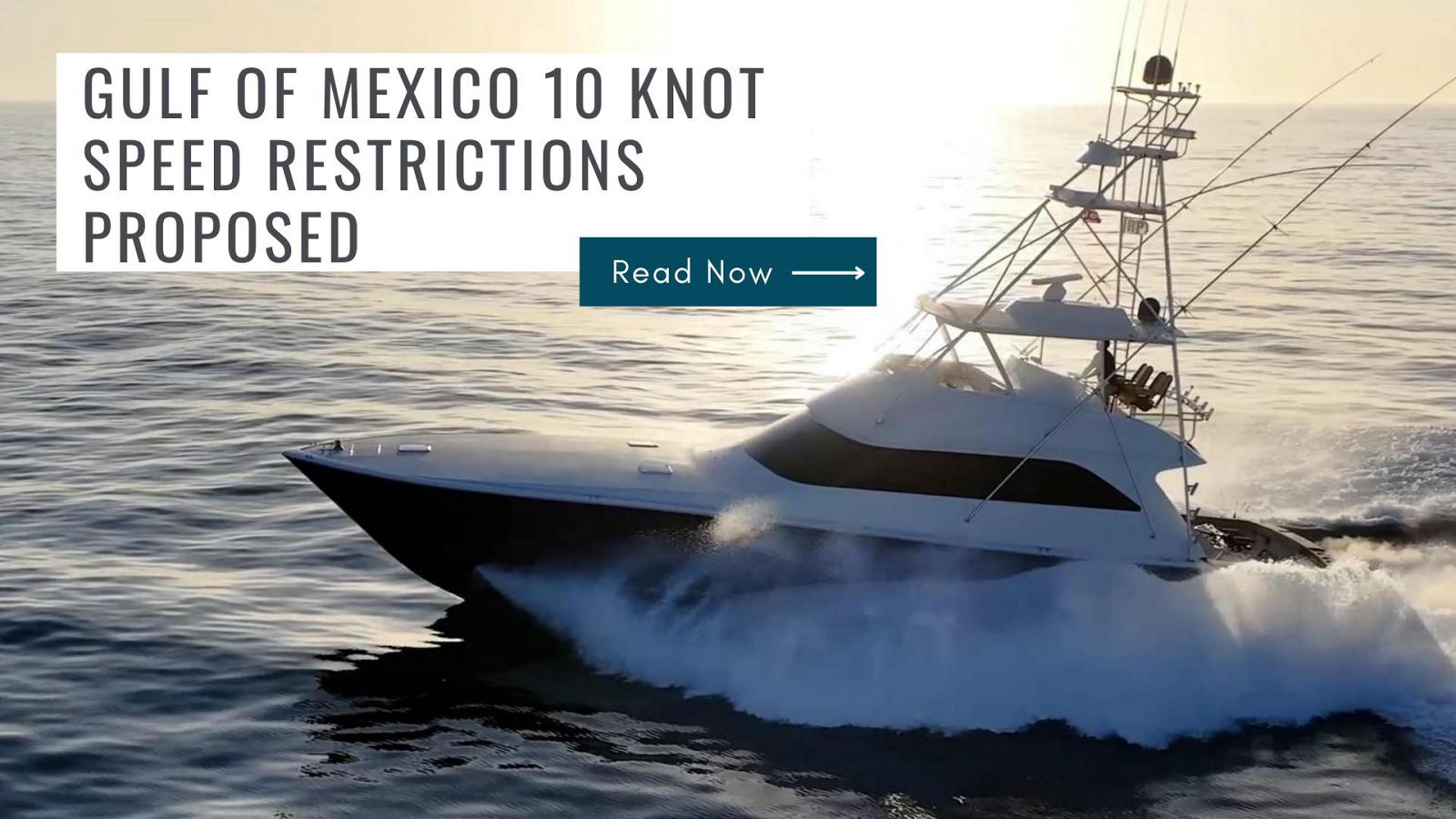Here we go again. The attack on boaters and the boating industry continues with a new speed restriction bill introduced by the National Oceanic and Atmospheric Administration without proper data collection or any kind of potential discussion for solutions.
(Link below to a pre-written public comment you can submit via Boating United urging the NOAA to reconsider.)
The Rice's Whale is part of the baleen whale family and is most often found in the Gulf of Mexico between 300 feet and 1,200 feet. Little is really known about the Rice's Whale, only that it forages for food near the ocean floor and that they remain in the Gulf year round as they prefer the warmer water. It is estimated that there are just over 50 Rice Whales left in existence and are an endangered species.
Similarly to what the NOAA is trying to do along the Atlantic Coast to protect the Right Whale, massive speed restrictions to boats of all sizes have been proposed. Keep in mind, not a single piece of evidence ever reported of a boat or yacht running into a Rice's Whale.
Here are the bullet points:
- Mandatory speed restriction of 10-knots or less
- Maintain a 500 yard distance from Rice's Whales
- No boating at night in the 100m-400m deep zone
- Vessels transiting must use an AIS system (Automatic Identification System)
- Vessels transiting must report their travel plans to the NMFS and utilize "visual observers"
The zone by which these rules apply in the Gulf of Mexico stretches from the most eastern part of Mississippi to just north of Fort Myers, Florida.

United Yacht Sales Emerald Coast Division Manager Brian Franc has spent his career selling yachts and boating around the Florida Panhandle through Orange Beach, Alabama. "I'd like to know what the real posed risk is to the Rice's Whale," said Brian. "Have there been any boat collisions with these whales? What are the statistics? There are electronics that can be purchased by boaters that can assist them in spotting whales. And what about the other threats to the whales like industrial noise, oil spills, commercial fishing tackle, etc. Nothing is proposed to curb those threats."
The 10-knot speed restriction would severely affect cruising for sportfishing yacht and motor yacht owners alike.
“Once again, proponents of vessel speed restrictions are acting as if small recreational boats are the same as large cargo ships. They are not,” said Jeff Angers, president of the Center for Sportfishing Policy. “We invite NOAA to join with us in identifying 21st Century technological advances that can help tell mariners where whales are instead of effectively barring public access to America’s marine waters.”
“As more is learned about the recently-discovered Rice’s whale, it is critical that NOAA focus from the outset on collaborating with stakeholders instead of leaping to drastic restrictions,” said Glenn Hughes, president of the American Sportfishing Association. “As an industry that cares deeply about conservation of the marine environment, the recreational fishing and boating industry is ready, willing and able to help develop solutions to support whale conservation. Relying on massive speed restrictions that effectively shut down boating and fishing is not a viable path forward for the Rice’s whale or the economy.”
>>> IF YOU OPPOSE THE "VESSEL SLOWDOWN ZONE" PROPOSAL, PLEASE TAKE A MOMENT TO SUBMIT THIS PRE-WRITTEN COMMENT TO THE NOAA. <<<






